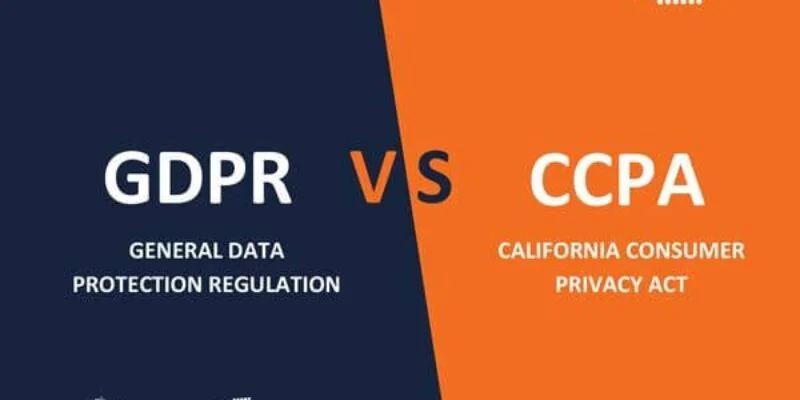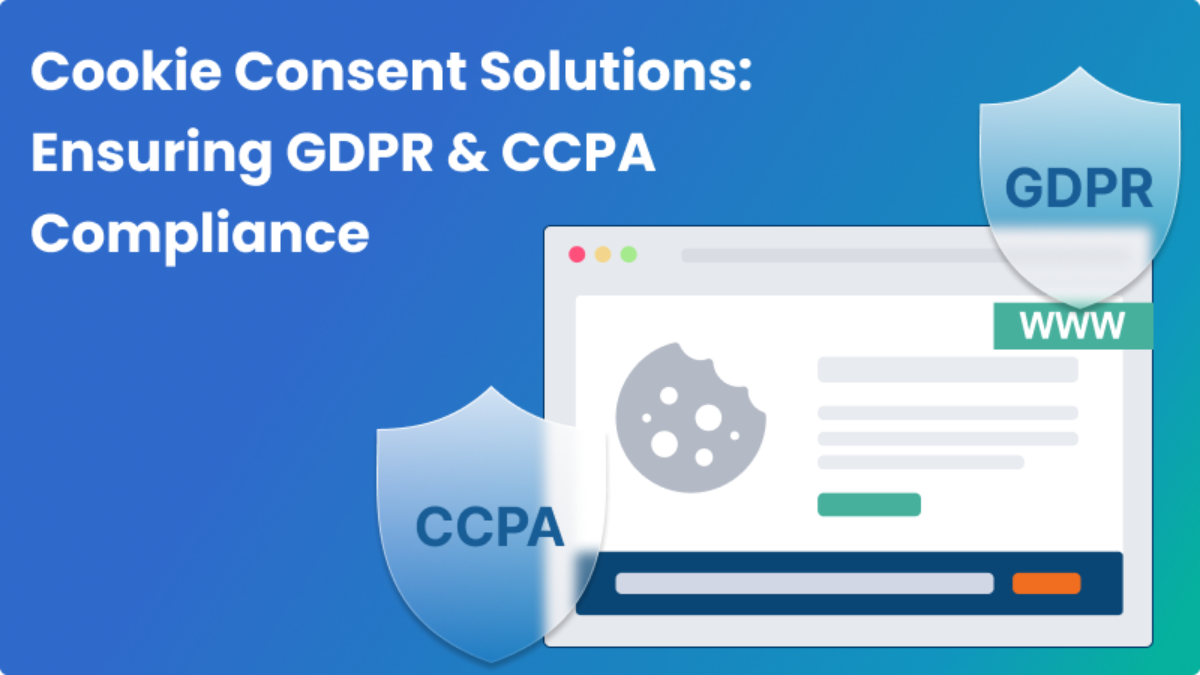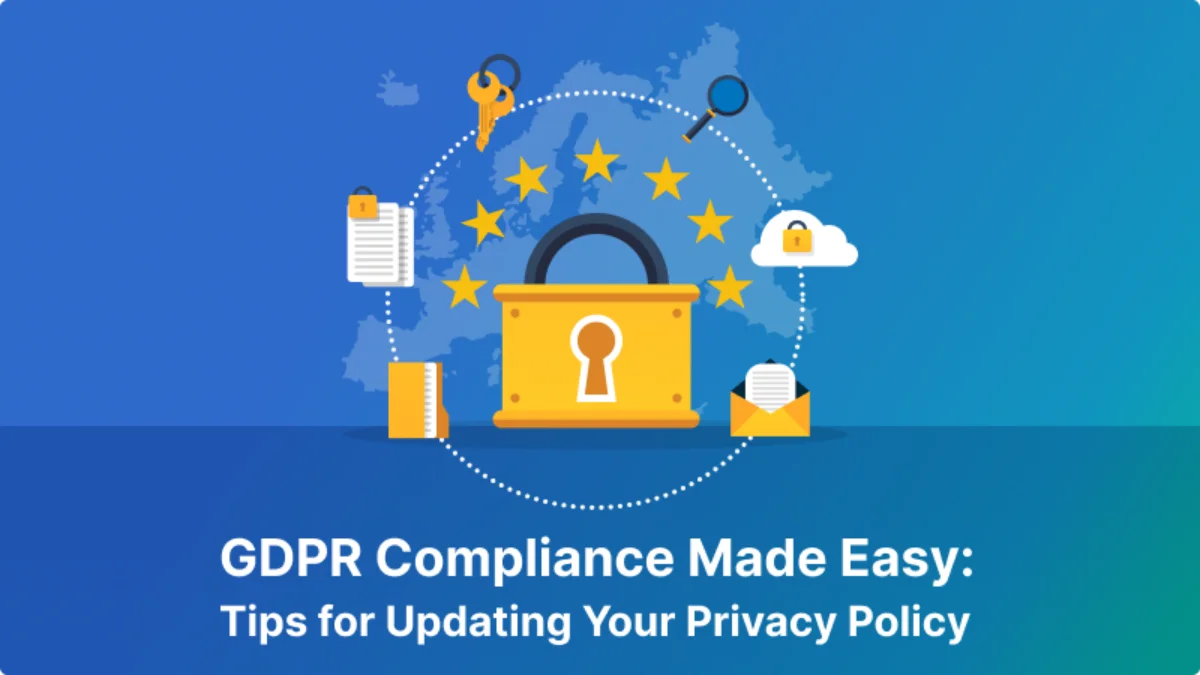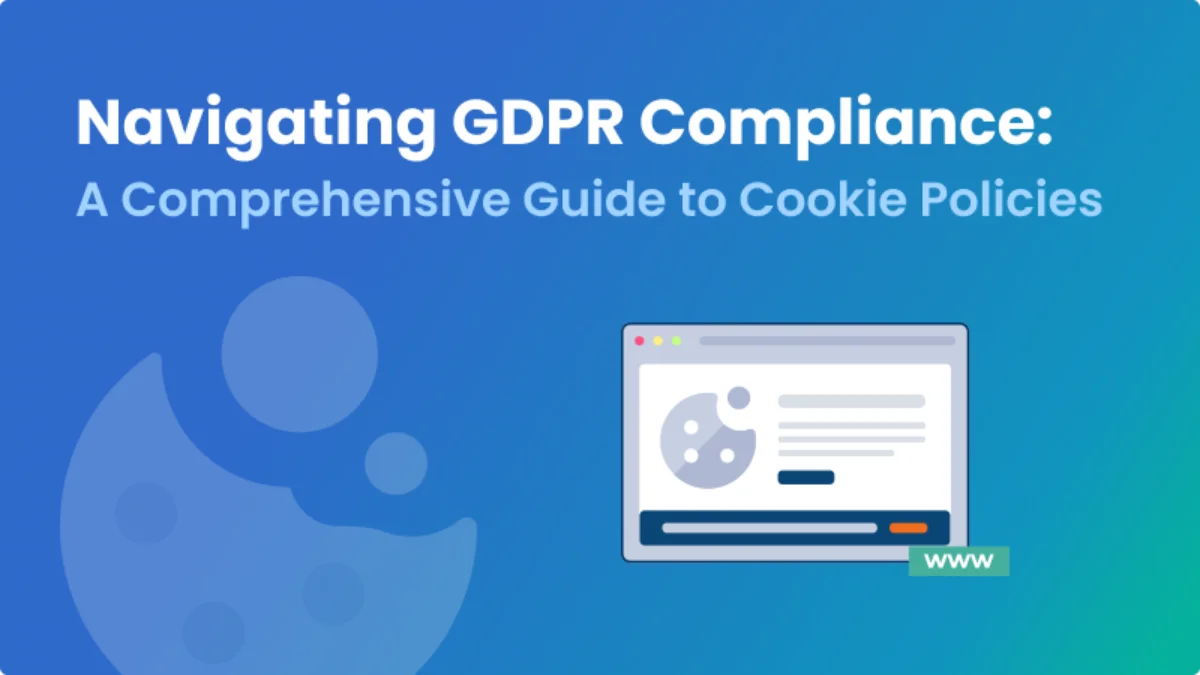GDPR vs CCPA: Key Differences and Similarities

About GDPR and CCPA
Data privacy law has rapidly emerged as a focal point for both consumers and businesses worldwide, reflecting the necessity to manage innovation and technology responsibly in an era where personal data is collected, traded, and retained. Under both the GDPR and CCPA, the term “personal data” means any information that can directly or indirectly represent an identifiable person. Under the CCPA requirement, businesses must provide consumers with a clear and easily accessible option to opt out of the sale of their personal information to California residents.
In this blog, we’re diving deep into CCPA and GDPR– two big regulations for data privacy. We’ll uncover what makes them different and alike, so you get the picture. Let’s untangle these regulations and see what they mean for people, businesses, and data around the world. We will explore the intricate landscape of data protection, shedding light on the nuances of compliance. Delving into the CCPA and GDPR comparison, it explains the distinctions between these important data privacy frameworks. From jurisdictional variances to key compliance requirements, the article plots the debate, providing insights for businesses aiming to adhere to both regulations. The article serves as a valuable resource for all organizations seeking clarity on the regulation’s convergence in the realm of data privacy of the customers.
.
What is General Data Protection Regulation (GDPR)?
The European Union (EU) passed the General Data Protection Regulation (GDPR), a piece of legislation requiring data privacy rules for EU residents. The GDPR was established in 2018 and governs personal data gathering, use, disclosure, and consent in compliance with the Data Protection Act. The GDPR protects any individual located inside the EU, whereas the CCPA protects California residents. GDPR gives all EU individuals the following data subject rights regarding their data:
- The right to be informed
- The right of access
- The right to rectification
- The right to erasure
- The right to restrict processing
- The right to data portability
- The right to object
- Rights about automated decision-making and profiling
GDPR is regarded as one of the most stringent regulations due to its focus on data processing and severe fines for noncompliance. GDPR applies to any entity that provides products or services to EU citizens or residents, regardless of geographical location. This means that anyone who hosts a website that collects data from EU visitors must be GDPR compliant.
What is the California Consumer Privacy Act (CCPA)?
California Residents now have additional data privacy protection rights according to state legislation passed in 2018 called the California Consumer Privacy Act. The CCPA applies to businesses in California if they collect or sell Californian personal information, no matter where the company is located. Residents of California’s privacy rights now include:
- The right to knowledge about what personal data a company gathers about them, how it is used, and with whom.
- The ability to have their personally identifiable information removed (with some restrictions).
- The choice not to have their personal information sold.
- The prohibition against being treated unfairly for exercising their CCPA rights.
Consumers in California had less control over their data once it was obtained before the CCPA. Before using a product, consumers were frequently required to sign a contract waiving their rights to data ownership. Any business around the world will need to be CCPA compliant if they are processing data of more than 50,000 Californians annually.
Differences between GDPR and CCPA
See below GDPR vs. CCPA comparison chart and learn more about the difference between gdpr and ccpa.
Scope
Applicability
• Collect or store data from EU citizens or residents
• Operate outside of the EU yet offer goods or services to EU citizens
• Monitor the behaviour of persons within the EU.
• Buy, share, or sell data from at least 50K California citizens
• Earn more than 50% of revenue from the sale of personal data
• Have an annual revenue of $25M+
Penalties
• 2% of global annual turnover or €10 million, whichever is higher; or
• 4% of global annual turnover or €20 million, whichever is higher.
• $2,500 for each violation;
• $7,500 for each intentional violation
GDPR vs CCPA Similarities
Let’s compare CCPA & GDPR Similarities to see what they have in common.
Business locations
Companies do not have to be based in Europe to be bonded by the GDPR or in California to be bonded by the CCPA.
Consumer access
Businesses must comply with a consumer’s request to access their data.
Ensure
Both California and Europe-based customers can request companies to delete their personal information from organization databases.
Consumers trust
91% of consumer trust companies are transparent about how they use consumer data. For both GDPR and CCPA compliance, this helps the companies build this customer trust.
Similar but in different ways
Opt-out
Both CCPA and GDPR require businesses to attain customer consent but in diverse ways
Minors
Both CCPA and GDPR regulations feature unique rules for collecting information from minors.
Damages
Here’s how CCPA and GDPR fees for damages differ.
Transparency
CCPA and GDPR have different data collection transparency rules.
• What your business does
• How they can contact you
• Why are you processing personal data
• What types of data you collect and long you will store it
• Disclosure of where data is being shared
• What types of information you are collecting
• For what purpose you are collecting data
• Specifics of what is being collected
• Disclosure of where data is being shared
Conclusion for CCPA Vs. GDPR
In summary, the GDPR and CCPA compliance are significant data privacy laws with the common purpose of personal data protection. These standards take into account how important data protection is becoming in the digital age. Both place a strong emphasis on user rights and permission, allowing people to access, manage, and remove their data. While the CCPA focuses on defending Californians’ data rights, the GDPR has a wider scope, global applicability, and harsh penalties. n terms of data privacy, both CCPA & GDPR laws reflect a trend toward greater openness, responsibility, and user empowerment.
FAQ
How is GDPR different from CCPA?
The GDPR compliance requires that you have a legal basis (such as consent) for acquiring personal data. Users must be allowed to opt out of their personal information-gathering practices under the CCPA. The GDPR protects everybody in the EU, but the CCPA only protects California residents.
Why is GDPR preferable to CCPA?
Individuals have a greater degree of control over what happens to their data under GDPR than under CCPA. The Data Subject is defined in GDPR as whether their data is gathered directly from them or when it is obtained from another source.
Is GDPR stronger than CCPA?
Both laws have similar goals regarding user privacy. However, GDPR has a broader scope of applicability, given that it protects the data of all EU citizens. CCPA is specific to California residents.
What is the purpose of GDPR and CCPA?
The GDPR stands for General Data Protection Regulation and it is an EU regulation for the data protection and privacy of EU residents. The CCPA stands for California Consumer Privacy Act and it is a US state law to protect the data and privacy rights of Californian residents.
Which is stricter GDPR or CCPA?
The GDPR is stricter and requires that users give their unambiguous consent prior to having their personal data collected and processed, while under the CCPA the consent is needed just for data disclosure or selling to third parties.

















